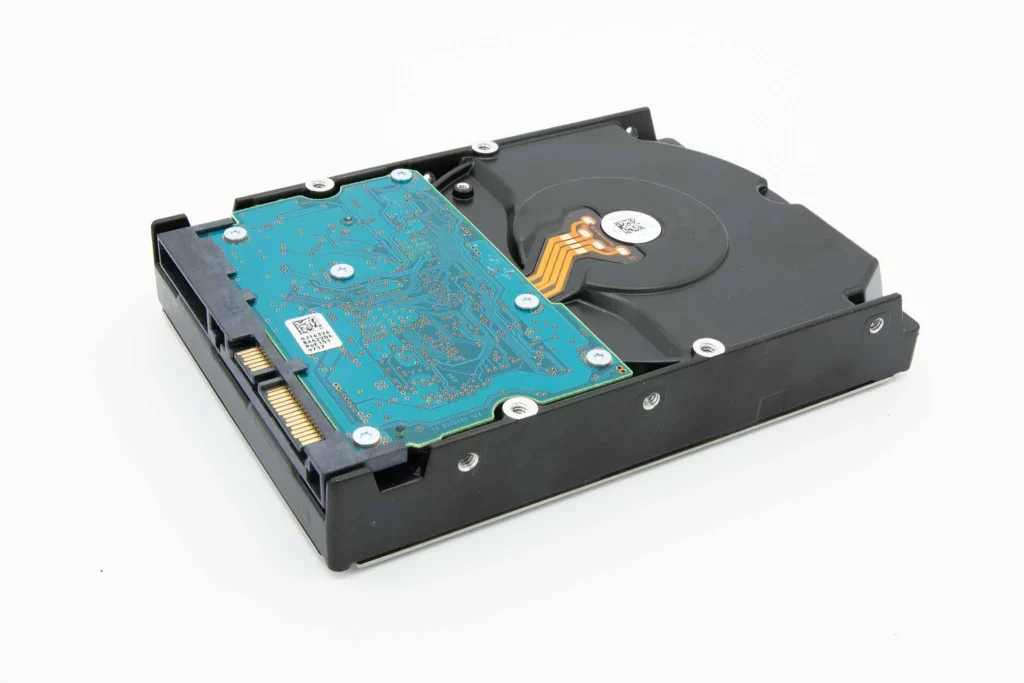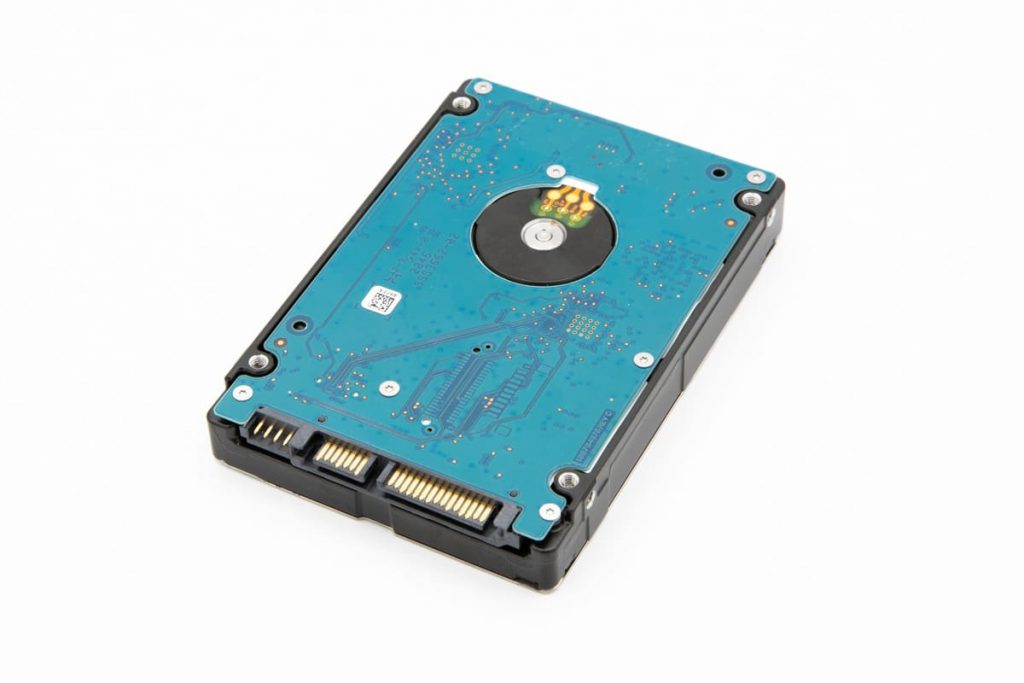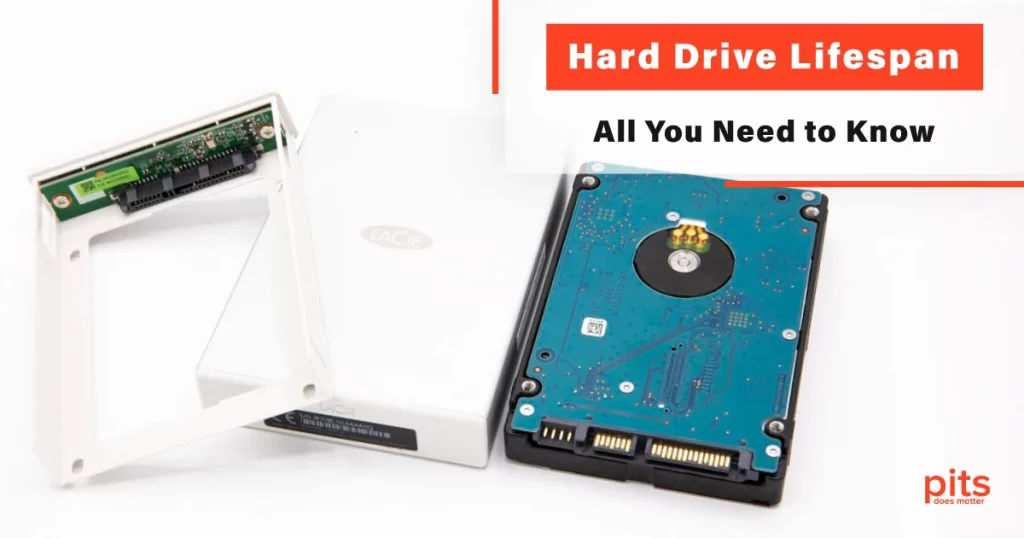A hard drive is an essential part of any computer system, providing a vast amount of storage space for files, documents, photos, and other digital media. However, like all electronic devices, hard drives have a limited lifespan. In this post, we will delve into the truth about the lifespan of your hard drive and the factors that can impact it.
Factors That Affect Average Lifespan of a Hard Drive
It is important to note that the lifespan of a hard drive also depends on how it is used. Heavy usage, such as continuous read and write in high-temperature environments, can reduce a drive’s lifespan. On the other hand, a drive that is used less frequently and stored in a cool and dry place may last longer than its estimated lifespan.
In addition to wear and tear, hard drives can also fail due to data loss or corruption. This is why it is crucial to regularly back up important data, either through online backup services or physical backup methods like external hard drives. It’s also important to note that if a hard drive fails, there may be options for data recovery. To extend the lifespan of a hard drive, it’s recommended to avoid physical shocks and vibrations, which can cause damage to the drive’s components.
Keeping the drive clean and free from dust is also important, as this can cause overheating and other issues.
Other factors affecting hard drive lifespan include the type of drive and its age. Traditional disk drives with moving parts are more susceptible to wear and tear over time and are generally less durable.
The environment in which a hard drive operates can also impact its lifespan.

Operating a HDD in a high-temperature environment, for example, can cause it to degrade more quickly due to increased wear and tear on the components. Another factor to consider is the stress level that a hard drive is subjected to.
Constant read/write operations, for example, can cause a drive to degrade more quickly than one that is only used occasionally. This way, you will decrease the average lifespan of external hard drives, same as internal.
Running multiple applications simultaneously can put additional stress on the drive and cause it to wear out faster. In addition to these factors, the age of a hard drive can also impact its lifespan. As a hard drive gets older, it may become more prone to failure due to wear and tear on its components.
This is why it is important to regularly monitor the health of your hard drive and replace it if necessary. This way you can increase internal or external hard drive lifespan.
Warning Signs of a Failing Hard Drive
It’s crucial that a hard drive is reliable to ensure your data is safe. Recognizing the first signs of a hard drive failing can be the key to preserving valuable information. Be alert for these initial indicators:
1
Unusual Noises. Be aware of any strange sounds that may be coming from your computer, such as clicking, grinding, or whirring. These sounds often indicate mechanical problems within the hard drive that can lead to failure.
2
Sluggish Performance. If your system’s performance has abruptly taken a hit, with periodic freezes, extended load times, and delays in file access, it might be due to a failing hard drive.
3
Frequent Crashes. A failing hard drive can trigger system crashes, causing your computer to unexpectedly restart or show the dreaded “blue screen of death.”
4
Excessive Heat. Overheating can extremely shorten a hard drive’s lifespan. Touch your computer’s case and be alert if it feels overly hot.
5
Data Issues. Be careful of corrupted files, displaying errors upon access, or even disappearing completely. Such happenings can point to underlying hard drive issues.
6
S.M.A.R.T. Warnings. Many contemporary hard drives feature S.M.A.R.T. (Self-Monitoring, Analysis, and Reporting Technology) that can provide advance warning about upcoming failures. Keep an eye on S.M.A.R.T. alerts via proper diagnostic software
You can take these proactive steps not only to safeguard your data but also to prolong the hard drive’s lifespan and prevent potential troubles caused by a failing hard drive.
Prolonging Your Hard Disk Drive Lifespan
In addition to good data management and careful handling, there are other steps you can take to extend the life of your hard drive. First, ensure that your computer is free of malware and viruses, which can cause data loss and damage to your hard drive.
Regularly running virus scans and keeping your antivirus software up to date can help prevent these issues. Another important factor in prolonging hard drive average lifespan is maintaining proper ventilation and cooling.
Overheating can cause significant damage to your drive, so it’s essential to ensure that your computer’s fans are functioning correctly and that your computer is kept in a well-ventilated area.
You may also consider investing in an uninterruptible power supply (UPS) to protect your hard drive from power surges and outages.

Power fluctuations can cause serious damage to your hard drive, and a UPS can help ensure that your computer remains powered and protected. Regularly updating your hard drive’s firmware and software can also help extend its lifespan.
Manufacturers often release updates that address performance and stability issues, so staying current with these releases can help ensure that your drive operates optimally.
Backing up your data is essential for protecting your files and avoiding data loss. There are several ways to back up your data, such as using an online backup service or an external hard drive. Regularly backing up your data can also help extend the lifespan of your hard drive by reducing the amount of wear and tear it experiences. In case of data loss, data recovery services can help retrieve lost files and restore them to a functional drive.
Our Data Recovery Services for Expired HDD Life Expectancy
The information saved on a hard drive can be lost or corrupted because of unintended deletion, software glitches, or hardware breakdowns. In such circumstances, it’s essential to perform data recovery to retrieve the lost or damaged data from the hard drive. Thankfully, PITS offers hard drive recovery solutions to help you retrieve your missing files.
With expert technicians, advanced data recovery methods, and cutting-edge equipment, PITS can efficiently and speedily recover data from different hard drives. You can count on PITS to restore your data promptly and effectively.

If you’re facing a data loss situation, don’t hesitate to contact us. Our 24/7 data recovery services are available to you, 365 days a year. Let us help you recover your precious data today.

We start the recovery process with a risk-free evaluation. Our technicians estimate reasons for data loss and the level of damage. Based on it, we select the most suitable recovery strategy.

With years in the data recovery industry, our company supports the highest customer satisfaction rate. We do everything to provide a positive experience for our clients.

During our remote customer file verification session, you will thoroughly review all necessary documents and records to ensure accuracy and compliance.

We offer data recovery services from over 50 locations across the US. This means that no matter where you are located, you can access our services to recover the data.

With our certified data recovery services and 99% success rate, we are confident that we can recover your precious data and get you back up and running in no time.
If you wish to start a case with the competent engineers of PITS Global Data Recovery Services, you can easily complete the provided form, and a representative will contact you without delay. Rest assured, PITS Global Data Recovery Services will deliver satisfactory outcomes for your case.
Frequently Asked Questions
What is the lifespan of a hard drive?
The lifespan of a hard drive can vary depending on a number of factors such as usage, environment, and manufacturer. On average, a typical hard drive can last anywhere from 3 to 5 years.
What factors can affect the lifespan of a hard drive?
There are several factors that can affect the lifespan of a hard drive, including usage patterns, temperature and humidity levels, vibration and shock, and manufacturing quality.
How can I extend the lifespan of my hard drive?
To extend the lifespan of your hard drive, you can take several steps such as backing up your data regularly, avoiding exposure to extreme temperatures and humidity, and keeping your system free of dust and debris.
What are the signs that my hard drive is failing?
Some common signs that your hard drive may be failing include slower than usual performance, unusual noises such as clicking or grinding, and frequent system crashes or errors. If you experience any of these symptoms, it is important to back up your data and consider replacing your hard drive.
Is it possible to repair a failing hard drive?
In some cases, it may be possible to repair a failing hard drive by using data recovery software or by replacing certain components. However, this is not always possible, and in many cases, it is recommended to replace the hard drive to ensure the safety of your data.
